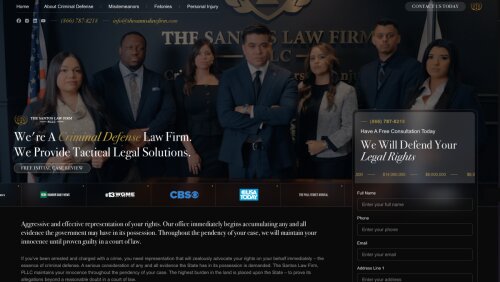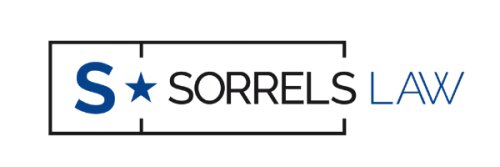Best Toxic Mold Lawyers in Houston
Share your needs with us, get contacted by law firms.
Free. Takes 2 min.
List of the best lawyers in Houston, United States
About Toxic Mold Law in Houston, United States
Toxic mold can be a serious issue in Houston, United States, particularly in humid climates where mold thrives. Exposure to toxic mold can lead to health problems and property damage, making it crucial to understand the legal implications of dealing with mold in Houston.
Why You May Need a Lawyer
There are many situations where you may need a lawyer to help you with toxic mold issues. This can include disputes with landlords or property owners, insurance claims related to mold damage, or legal action against negligent parties responsible for the mold problem. A lawyer can help protect your rights and navigate the complex legal landscape surrounding toxic mold.
Local Laws Overview
In Houston, there are specific laws that address toxic mold issues, including landlord-tenant laws, property damage laws, and regulations related to mold remediation. It's important to be aware of your rights and responsibilities under these laws when dealing with toxic mold in Houston.
Frequently Asked Questions
Q: What should I do if I suspect there is toxic mold in my rental property?
A: Contact your landlord immediately and document the mold with photos. You may need to involve a lawyer if the landlord fails to address the issue.
Q: Can I sue my landlord for toxic mold exposure?
A: You may have grounds to sue if your landlord was aware of the mold problem and failed to take proper remediation measures.
Q: Will my insurance cover mold damage?
A: It depends on your policy. Consult with a lawyer to understand your coverage and options for filing a claim.
Q: How can I prove that mold exposure has affected my health?
A: You may need to obtain medical documentation linking your health issues to mold exposure. A lawyer can help you gather the necessary evidence.
Q: What are the deadlines for filing a lawsuit related to toxic mold exposure?
A: The statute of limitations for mold-related lawsuits varies, so it's important to act quickly and consult with a lawyer to understand your legal options.
Q: Can I be evicted for complaining about mold in my rental property?
A: Retaliatory eviction is illegal in Houston. If you believe you are being evicted unjustly, seek legal advice to protect your rights.
Q: How can I prevent mold growth in my home?
A: Proper ventilation, moisture control, and regular inspection can help prevent mold growth. Consult with a mold remediation specialist for guidance on prevention measures.
Q: What are the potential health risks of toxic mold exposure?
A: Health risks can include respiratory issues, allergies, skin irritation, and more severe reactions in individuals with compromised immune systems.
Q: Can I handle mold remediation on my own?
A: It's best to hire a professional mold remediation company to ensure the proper removal and cleanup of toxic mold to prevent further health risks.
Q: How can I find a lawyer specializing in toxic mold cases in Houston?
A: Do research online, ask for recommendations from friends or family, and schedule consultations with potential lawyers to find the right fit for your case.
Additional Resources
For more information on toxic mold laws in Houston, you can refer to the Texas Department of State Health Services website or contact the Houston Bar Association for legal resources and referrals.
Next Steps
If you are facing legal issues related to toxic mold in Houston, it's important to seek legal advice from an experienced attorney who specializes in mold cases. Consult with a lawyer to understand your rights, options, and next steps in addressing toxic mold exposure and property damage.
Lawzana helps you find the best lawyers and law firms in Houston through a curated and pre-screened list of qualified legal professionals. Our platform offers rankings and detailed profiles of attorneys and law firms, allowing you to compare based on practice areas, including Toxic Mold, experience, and client feedback.
Each profile includes a description of the firm's areas of practice, client reviews, team members and partners, year of establishment, spoken languages, office locations, contact information, social media presence, and any published articles or resources. Most firms on our platform speak English and are experienced in both local and international legal matters.
Get a quote from top-rated law firms in Houston, United States — quickly, securely, and without unnecessary hassle.
Disclaimer:
The information provided on this page is for general informational purposes only and does not constitute legal advice. While we strive to ensure the accuracy and relevance of the content, legal information may change over time, and interpretations of the law can vary. You should always consult with a qualified legal professional for advice specific to your situation.
We disclaim all liability for actions taken or not taken based on the content of this page. If you believe any information is incorrect or outdated, please contact us, and we will review and update it where appropriate.















